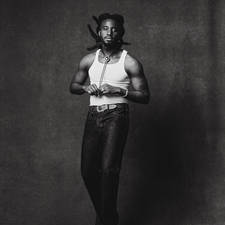Mother Loses Appeals Over Sentence
23 May 2012, 06:23
A mother who murdered her two young children and placed their bodies in holdalls in the boot of her car has lost her appeal against sentence.
Former City worker Fiona Donnison, 45, of Lightwater, Surrey, was given two life sentences and ordered to serve at least 32 years behind bars last August after jurors convicted her of the murders of three-year-old Harry and two-year-old Elise.
She sat with her head bowed in the dock of the Court of Appeal in London today and showed no emotion as three judges rejected argument that the minimum term was too long.
Lord Chief Justice Lord Judge, sitting with Mr Justice Openshaw and Mr Justice Irwin, said: "In our judgment, the judge's decision about the relevant mimimum term in this dreadful case was within the appropriate range and there is no basis with which we should interfere with the assessment that a minimum term of 32 years should be served.''
Donnison went into Heathfield police station in East Sussex on the morning of January 27 2010 and told officers she had killed her children.
A search of the area located them in the boot of her Nissan car, which was parked in Mill Close, Heathfield, around the corner from Meadowside, the former family home.
Jurors at Lewes Crown Court found her unanimously guilty of murder after hearing she had smothered them with their bedding the night before.
The trial judge, Mr Justice Nicol, described the murders as "deliberate and wicked acts''.
He said: "Why you did this defies logical explanation. It seems it can only have something to do with your feelings for Paul Donnison, the children's father and your former partner.''
The judge said the jury had rejected her defence that she was suffering from serious depression and was not in her right mind.
Donnison, who was described as a narcissist with an overdeveloped sense of self-importance and entitlement, declined to give evidence during the trial.
The appeal judges had heard from Simon Russell Flint QC that the killings were in the context of a genuine suicide attempt by Donnison, who was suffering from some mental disorder, and there was a complete absence of premeditation.
He said that she had been "at all times an excellent and dedicated mother'', and there were particular stresses which tipped her over the edge so as to want to kill her children and then herself.
Lord Judge said that it was a "truly tragic case''.
"The issue at trial was diminished responsibility and, on the face of it, for a mother to kill her own children is clearly contrary to everything encompassed in that wonderful descriptive phrase 'mother's love'.''
He said that, in sentencing, the trial judge had rightly addressed the mitigating features but, on the other hand, the murders involved two small children who were defenceless.
"They were in the appellant's care and to asphyxiate them represented a grotesque breach of trust defying, as the judge put it, any logical explanation.''
On the basis of the evidence before him, and the jury's findings, the observation that the deaths were "the result of deliberate and wicked acts'' was one he was entirely justified in making, said Lord Judge.
"Like the judge, we have stood back and tried to balance all these different considerations which a case involving a mother killing her two small children requires and justifies.
"But, having done that, we have come to the conclusion that the judge did not merely properly attend to the issues which might have provided mitigation but, setting them against the serious aggravating feature we have identified, that the balance he achieved fell within the appropriate range for a sentence of this kind.''

